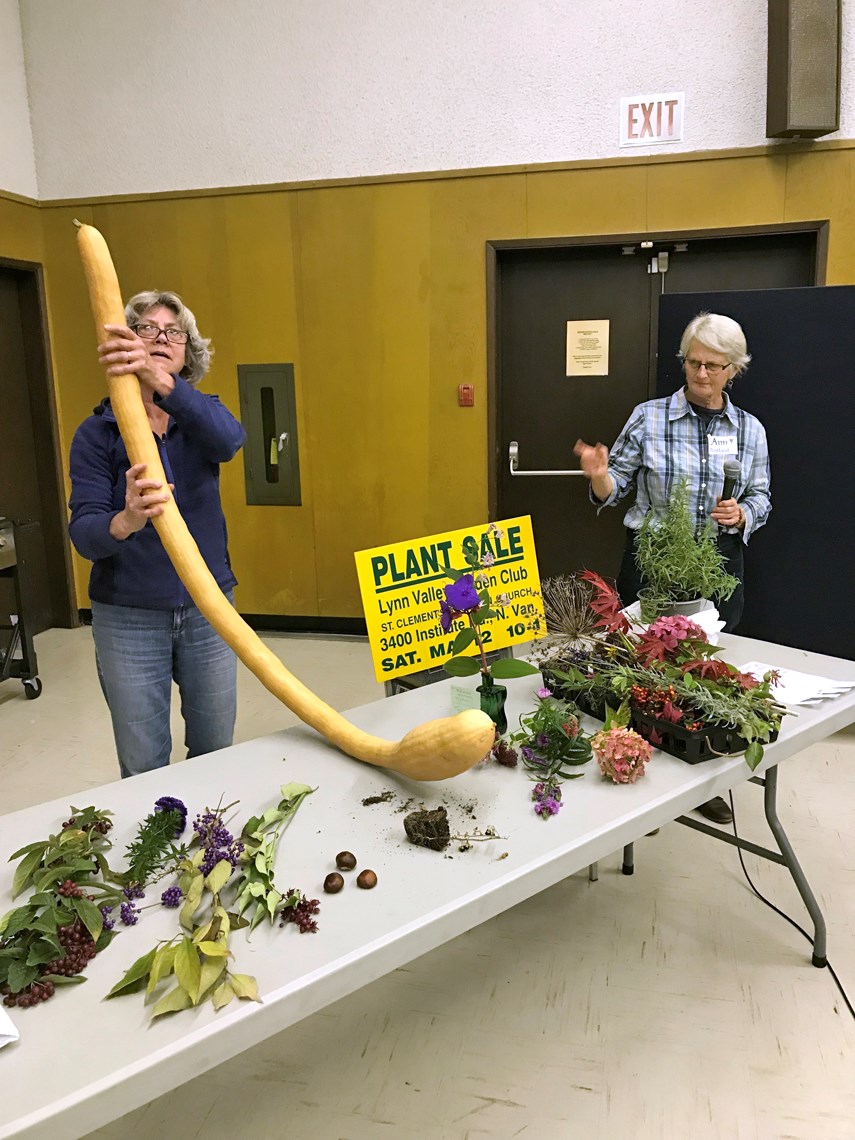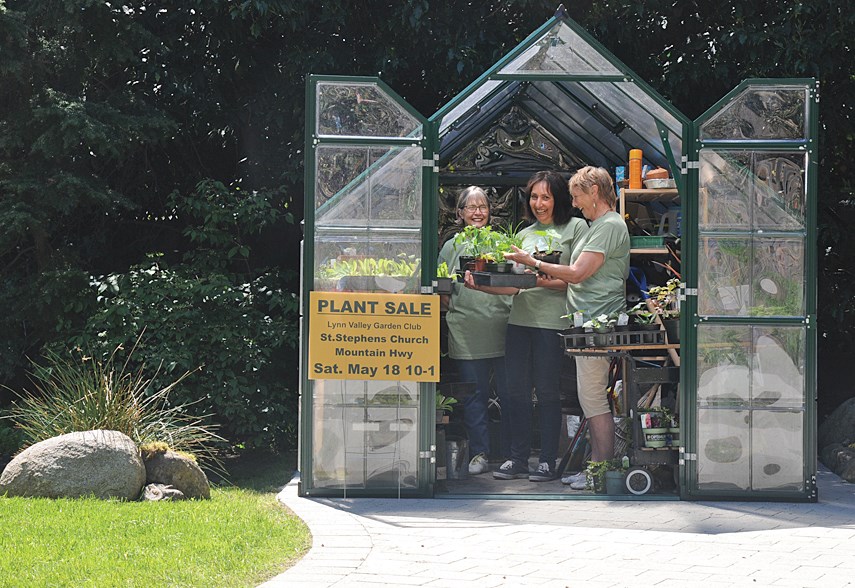Before the club could grow, its members had to dig.
It was the Second World War. Canadians and Allied forces alike were being encouraged by their governments to “Dig for Victory,” a refrain designed to foster the rationing of food and lessen the burden thrust upon the public food supply during a period of global conflict by getting people to grow their own crops.
For those around during such turbulent times, “victory gardens,” as they were also known, became a part of daily life. Whether they were passionate green thumbs or patriotic partisans, many decided to turn their digging efforts into organized gardening groups. Many of those clubs are still digging and growing.
Before it was officially called the Lynn Valley Garden Club, it was the “Lynn Valley Community Centre Horticultural Group,” according to garden club president Anna Marie D’Angelo, citing an old document which makes reference to the group officially forming in late 1943. And while the garden club in its current iteration is using that time reference to mark its 75th anniversary this year – with celebrations that include custom-made T-shirts and an extra-special plant sale slated for this weekend – the group’s roots actually stretch much deeper, adds D’Angelo, noting the high number of community garden clubs, many of which are still in existence, that cropped up during the North Shore’s storied early history.
“All the pioneers were members. They’re very active in the community and becoming a member of a garden club seems to be a given for someone that’s very active,” says D’Angelo.
Some of those early North Vancouver pioneers and early club members included Beatrice Summerfield and Mollie Nye, explains D’Angelo, pointing to a stockpile of old photographs and articles which refer to community members gathering to share gardening knowledge with one another going as far back as the 1920s.

Summerfield, in her book Garden Dreams Realized, written before her death in 1970, compares gardening to the act of an artist adding flourishes to a canvas. “As the years pass, so the garden grows in beauty, just as a painting does with age,” wrote Summerfield.
Early local garden enthusiasts used to attend garden parties and parlour shows at the Lynn Valley estate owned by Summerfield and her husband, an Edwardian-style residence with expansive gardens which the family owned since 1916.
“She was one of the key ones,” says D’Angelo.
Nye was another essential contributor to the group. She taught school in North Vancouver for 40 years and lived all her life in the same house her father built in 1913, located now at 940 Lynn Valley Rd. Her home contained a beautiful flower garden with many heritage perennials, shrubs, fruit bushes and rhododendrons.
She also “grew vegetables including Jerusalem artichokes and a renowned delicious rhubarb,” according to a news release issued by the garden club for its 75th anniversary.
Nye was a lifelong avid gardener, as well as a former president of the Lynn Valley Garden Club, who recounted in a North Shore News article from 1991 how as a child attending Lynn Valley School in the 1920s, “she and many others paid 20 cents in the spring and were given six packages of vegetable and flower seeds” and “a diary was to be kept recording planting, germination, thinning, weeding and watering.”
Society’s devotion to horticulture, planting and growing hasn’t always been as fervent in the following decades, except by those who were truly invested. Following a decline in membership in the early ’80s, the club disbanded for a period. But in 1989, due to the renewed efforts of two devoted original club members, Ruth Howard and Anne Walton, the club reformed.
Now boasting 125 members (with room for up to 150), the club has been going strong ever since, says D’Angelo.
“It’s a social group – and gardeners of any range, novice to really experienced, we get together for monthly meetings and we have speakers,” as well as participate in local garden tours, visit nurseries, share knowledge, and give back to the community, according to D’Angelo. “If you join a garden club you increase your knowledge so much. … Gardening is perfect because you plant your plant, or help your plant out, and just when you think, ‘What’s going on?’ it surprises you.”

Lynn Valley Garden Club member Doreen Dew says when she moved to Canada decades ago she was struck by the beautiful yet challenging terrain those compelled to garden were forced to contend with on the North Shore.
“The roots are huge and the stumps are massive – and that’s what I had in the garden to deal with, apart from these massive trees. That’s the type of gardening that was not just up the mountain but all way down to Lynn Valley,” says Dew, noting that year by year, decade by decade, green thumbs with the drive to get their hands dirty have crafted nature’s bounty into something even more beautiful.
With regards to her own garden: “I planted it for the pollinators and birds, for colour and texture.”
The Lynn Valley Garden Club is hosting its annual plant sale on Saturday, May 18 at St. Stephen’s Hall (1360 East 24th St.) from 10 a.m. to 1 p.m. Thousands of plants, including vegetables, herbs and shade-loving or sun-loving plants, will be for sale, typically costing $2-$5, with partial proceeds earmarked to support local garden projects and post-secondary scholarships for horticulture students.
Visit lynnvalleygardenclub.org for more details. In celebration of the club’s 75th anniversary, plenty of historical documents and photos – and information for potential members – will be on display during the sale with the intention of painting a vivid image of the garden club and its place in Lynn Valley’s lush history.
But the main focus will be on the gardening itself. In the words of Beatrice Summerfield, from her book: “I am afraid this will turn into an advertisement for Lynn Valley, B.C., if I do not stop. This was to be a garden story.”



